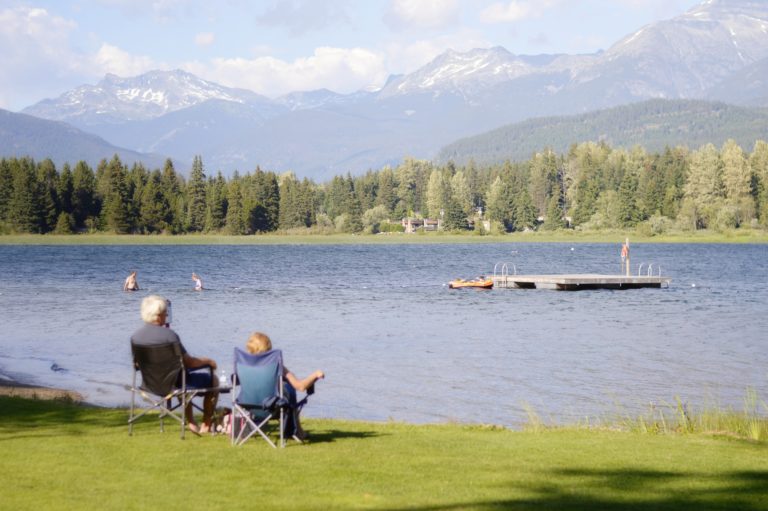Category: Pondering Peace
Retirement during the Climate Crisis

I have received many kind well wishes for my retirement from full-time work on the faculty of Central Seminary. Along with them, images of retirement have also been expressed – expectations of spending time resting, relaxing, traveling, being with family, and simply enjoying life. And I do hope for more of these. In fact, living “a quiet and peaceable life” (1 Tim.2:2) has great appeal. However, that is not why I chose to retire from full-time work. Rather, it is because the urgency of the climate crisis at this particular time in history calls me to step back from other work responsibilities so as to focus more fully on what I can be doing to address it.
A recent report from the Intergovernmental Panel on Climate Change (IPCC) highlighted the urgency of climate action by declaring that greenhouse gas emissions must peak and start going down by 2025 at the latest if we are to have hope of containing global warming to 1.5-2.0 degrees Celsius.* That is just three years away. Despite progress being made, global greenhouse gases are continuing to increase each year. If we stay on our current business-as-usual path, the projection is a rise in global temperatures of around 3.2 degrees Celsius* by 2100. Considering the effects of climate change already being experienced with extreme weather events, drought, heat waves, fires, and flooding, such a possibility has been described as “nightmarish.”
Time is clearly of the essence. It is urgent that humanity focuses its efforts on climate action now. Climate scientists, such as those with the Drawdown Project, have described the solutions and expressed that we have the knowledge and capacity to do them. What has been lacking is political will and mass public commitment. The recent passing of the Infrastructure Bill and the Inflation Reduction Act by Congress are incredibly hopeful steps forward. This funding opens up many opportunities for states, cities, local governments, businesses, nonprofits, churches, and individuals to make changes that lower greenhouse gases, and is projected to decrease our national emissions by more than 40% below 2005 levels by 2030.
Everyone is needed in this effort, including retired people who may have more time to devote than those in the midst of heavy work and family responsibilities. In fact, environmental activist Bill McKibben established an organization last year called Third Act, calling on people over 60 to get involved and organize against climate change. Having been politically active in justice issues as young adults in the 1960s and 1970s (their First Act), and then later immersed in their work and family lives (their Second Act), he calls for a Third Act of full-throated climate engagement, using all the capabilities and resources gained throughout life. Unwittingly, we have benefited from a fossil fuel-based lifestyle, not realizing that we were potentially dooming the future for generations after us. This is not time to sit back and let others take care of this mess. To the extent we are able, older people need to join with younger ones to do what we can.
And should not people of faith be at the forefront of climate action? Our sacred Scriptures declare God as creator and lover of the world. They speak of humanity’s role as caretakers and partners in God’s benevolent reign. They call for justice and care for the impoverished and oppressed, and climate change threatens all other efforts for justice and peace. As young people look to the future and grasp for hope, they need a spirituality that undergirds both courageous engagement and trustful living by connection with God. They need to see a church and people of faith fully engaged in doing all they can to care for creation by reducing our personal and congregational carbon footprints and by working to elect local, state, and national leaders that will prioritize the climate crisis in all their decisions. An urgent opportunity to be relevant and make a difference for this next generation is upon us. While many churches and faithful people are devoting themselves to just such ministry, even greater effort is needed to create the groundswell of support and public commitment to do what needs to be done to bring about a hopeful future.
I am grateful to be able to continue working part-time as the Director of the Buttry Center for Peace and Nonviolence at Central Seminary. This provides me an opportunity to reach out to and encourage involvement of the kinds of people I know best – congregations, pastors, students, alumni, denominations, and other seminary friends. The mission of the Buttry Center is to “theologically engage, educate, and connect people of faith for seeking justice, nurturing peace, and caring for creation.” Right now, in the urgency of this moment, a major emphasis will be on caring for creation by encouraging climate action. There is much that we can do and be a part of that will make a difference, and this will be our focus. I am eager to connect with those who want to work together on this urgent cause and join in with what God is already doing to care for this beautiful earth.
There was one other reason I decided to retire from teaching this year. Our second grandchild was born in March, and I am needed to watch her and her two-year-old brother while their parents work.
This is definitely not a retreat from life, but an energetic engagement in life that is filled with fun and moments of delight. So, I will spend two days a week with grandchildren and much of the rest of my time trying to make the world just a little bit better for them and all God’s children. What better motivation can there be to do our small part?
Ruth Rosell
Director of the Buttry Center for Peace and Nonviolence
September 12, 2022
*compared to preindustrial average temperature.
Image of lake by Max Harlynking on Unsplash